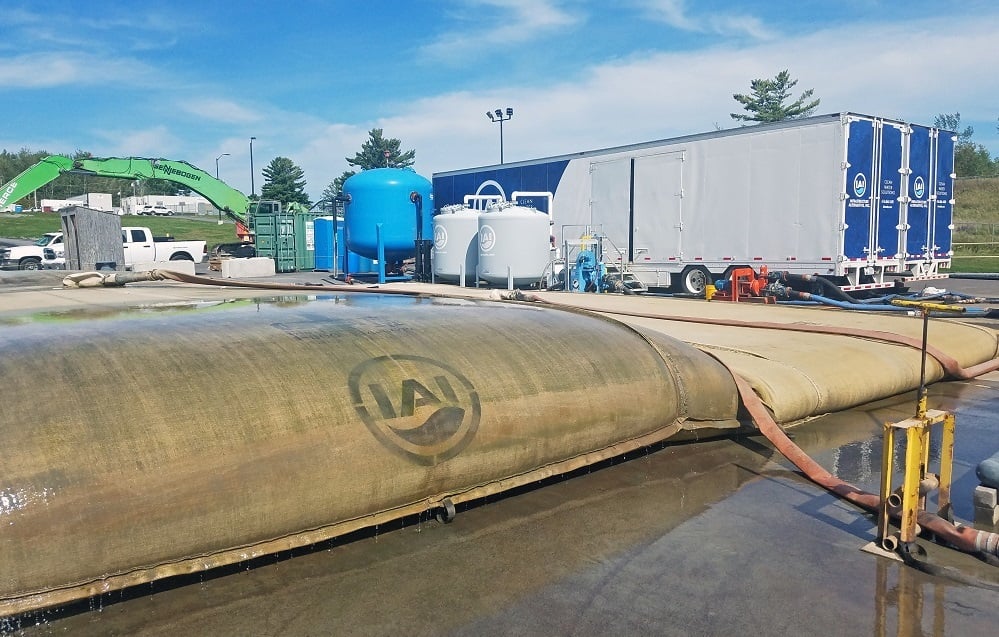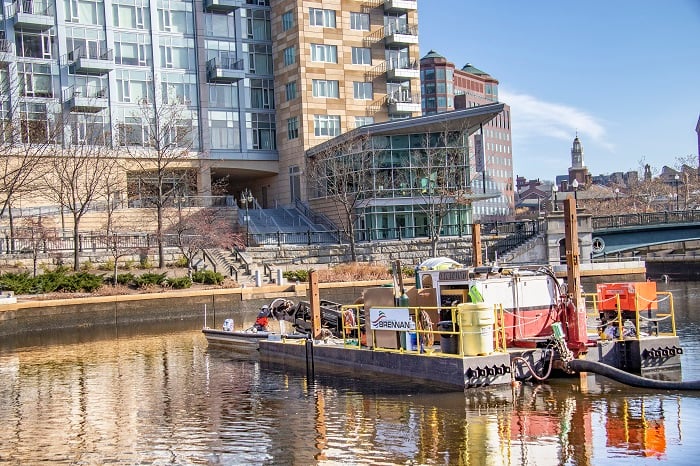This year, Nelosca's blog posts garnered an impressive readership of over 27,000. An analysis of our most searched topics identified the most significant issues in the environmental and marine construction industries, including those most relevant to our company's operations. This leads us to the question: What were our industry's most frequently researched topics?
We've examined Nelosca's most popular articles of the year -- let's count them down!
Our blog saw tremendous engagement this year, and several posts stood out as honorable mentions, being the 11th to 15th most read. These included topics ranging from diver-assisted dredging to repairing fish guidance nets at hydropower dams.
Honorable Mention:
- Why Getting a Contractor’s Constructability Review Matters
- Diver-Assisted Dredging and Capping Used in the Cuyahoga River Improvement Project
- Successful Hydraulic Dredging Relies on Critical Velocity
- Repairing Fish Guidance Nets at a Hydropower Dam
- How to Successfully Stabilize Dams Utilizing Post-Tensioned Anchors
Visitors to our website gravitated toward insights on Nelosca's recent acquisitions and awards, the costs associated with environmental dredging projects, and underwater construction solutions, like cofferdams, scour repair, and remotely operated vehicles (ROVs). These blogs sparked meaningful discussions and resonated with a broad audience, solidifying their place as some of the most impactful content of the year.
#10: Pros and Cons: Turbidity Curtains for Environmental Dredging

Turbidity is a hot-button issue in environmental dredging because uncontrolled contamination can spread to clean areas. Since every dredging project experiences the presence of suspended sediments in the water column, we take proper measures to control this problem.
#9: Tainter Gate Operation: Monitoring Tension for Longevity

Dams were built to last for long periods of time. However, specific components require periodic repairs and replacements. Radial gates, often called Tainter gates, consist of components most commonly needing attention. In our experience, we have found certain best practices that will increase these gates' longevity and functionality.
#8: Nelosca Technologies Earns 2023 Great Place To Work Certification™
"By successfully earning this recognition, it is evident that Nelosca stands out as one of the top companies to work for, providing a great workplace environment for its employees," says Sarah Lewis-Kulin, the Vice President of Global Recognition at Great Place To Work. The respected award is based entirely on current employees' experience working at Nelosca. 87% of employees said it's a great workplace – 30 points higher than the average U.S. company.
#7: Nelosca Acquires Dredging & Dewatering Division of IAI

We finalized the asset acquisition of the dredging and dewatering division of Infrastructure Alternatives, Inc. (IAI). Environmental services account for 50% of Nelosca’s work. Adding dewatering and water treatment to our existing offerings increases the accessibility of remediation services nationwide.
#6: Effective Solutions for Underwater Scour Repair
Underwater scour is the leading cause of bridge failure. Scour is the erosion or removal of a streambed or bank material from bridge foundations due to flowing water. There are many solutions to scour problems. However, there are two options that we find the most effective.
#5: 7 Cost-Drivers of a Dredging Project

#4: Helical Piles 101: Strengthening Foundations
A structure is only as good as its foundation. Beyond the superstructure, how do we ensure the strength and stability of a structure's foundation? One effective solution: helical piles. Helical piles can create new foundations, underpin weakening foundations, and better stabilize existing ones in preparation for heavier loads.
#3: Underwater ROVs: What Are They and How Are They Used?
ROV stands for remotely operated vehicle. They are highly maneuverable, unoccupied machines used to observe and work underwater, often in areas deemed too dangerous for commercial divers. Pilots can operate them from a nearby shore or boat.
#2: Essential Steps of Wetland Restoration
Our experience in wetland restoration began decades ago, working on the most extensive restoration program ever undertaken on a waterway worldwide. Since then, restoring marshes, wetlands, and highly sensitive ecosystems along inland and coastal waters has been a primary initiative. There are 4 essential steps to carrying out wetland restoration.
#1: Cofferdams 101: Different Types and Construction Methods on Waterways

A cofferdam is a structure that retains water and allows us to dewater a work area. There are numerous configurations, sizes, and material options for cofferdams. We can customize them to fit the needs of any project. Each system has pros and cons, depending on site location, site conditions, and cost restrictions.![]()
As we conclude this remarkable year, we thank our subscribers, readers, and authors who contributed their knowledge. The diverse topics covered in our top blogs reflect our commitment to providing valuable insights and thought-provoking content. We look forward to continuing this journey in the coming year as we delve into new and compelling subjects that shape the ever-evolving landscape of environmental remediation and marine construction.
Thank you for being part of our community, and here's to an even more inspiring year ahead!
Ready for more? Dive into our most recent industry articles HERE.
Do you have a topic or question you’d like us to explore? Contact our team directly at news@neloscatech.com.






